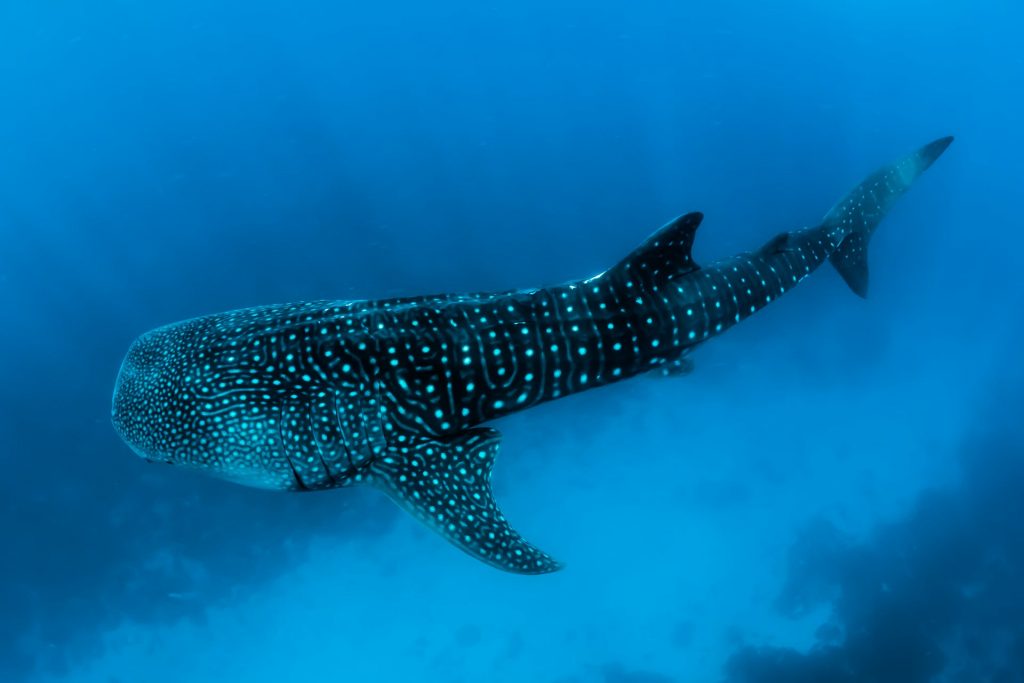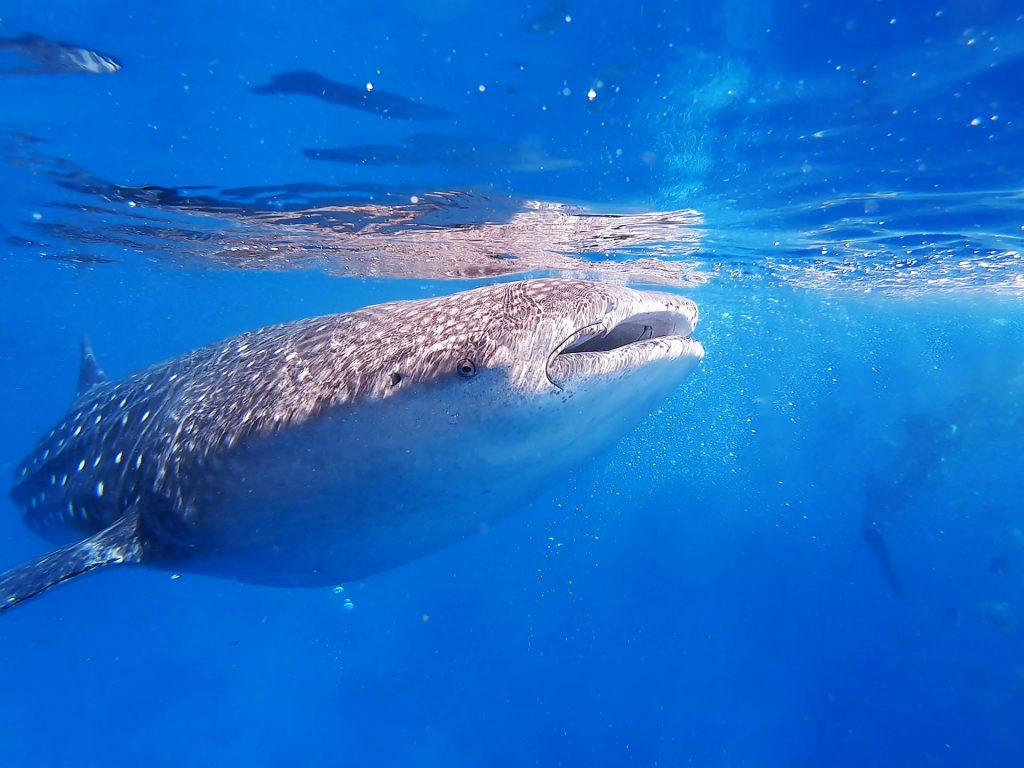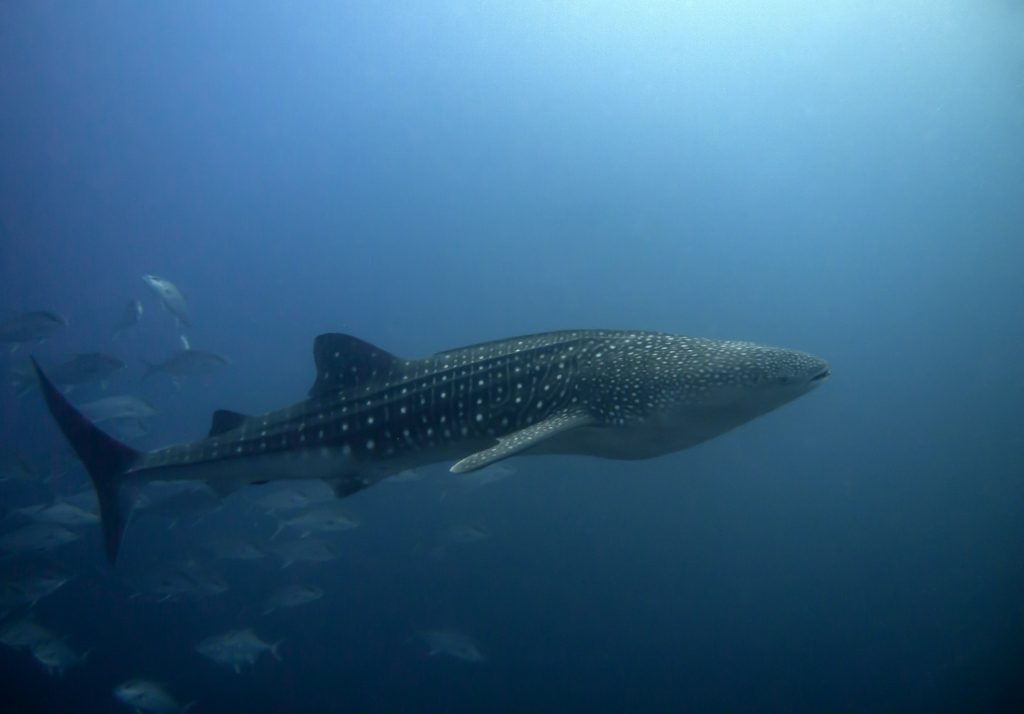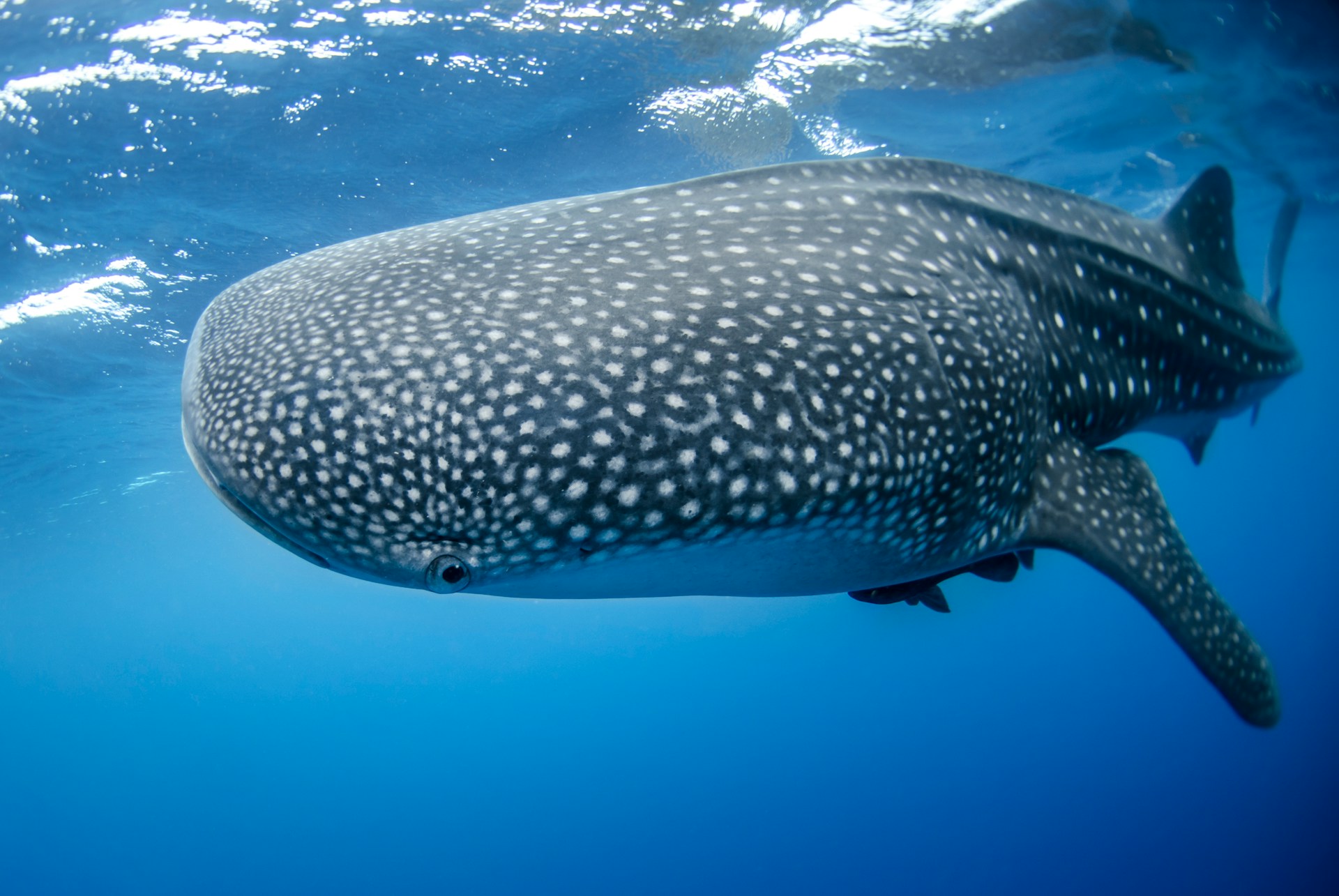Whale sharks are the majestic behemoths of the ocean. Not only do they hold the title of the largest shark species, but they also reign as the largest fish in the world. Their massive size is usually what grabs headlines, but there’s so much more to these gentle giants that sets them apart from the stereotypical image of a shark. Let’s dive deep into the world of whale sharks and uncover why they are truly special.

Not Your Average Shark: Gentle Giants of the Sea
Despite their daunting size, whale sharks defy the typical fearsome shark stereotype. They embody the diversity, importance, and intelligence of sharks—a group of fish often misunderstood. Interestingly, despite their name, whale sharks are not related to whales at all. Their name comes from their size and feeding habits, which they share with baleen whales: they are filter feeders.
Filter Feeders Extraordinaire
Whale sharks use their tiny teeth, less than 5mm long, to catch some of the smallest prey in the ocean: plankton. However, they don’t stop there. Given the chance, they will also gulp down a passing school of fish or squid. This filter-feeding technique is a marvel of evolution, allowing these giants to sustain their massive bodies on some of the tiniest creatures in the sea.
The Great Migration
The whale sharks found in South Africa, including the first scientifically described specimen from Table Bay, embark on incredible migrations. They travel between Cape Agulhas, the Azores, and Maine on the US coastline. These seasonal movements are driven by their need to follow the most abundant food sources. Imagine the sheer amount of plankton required to sustain a creature that can grow over 14 meters long!

Growing Up Giant
Whale sharks take approximately 25 years to reach maturity. They start life under 60 centimeters long and grow to be over 14 meters as adults. Their growth is fueled by a diet rich in plankton and other small prey, necessitating constant movement and feeding to ensure they get enough nutrients.
The Mystery of Spots and Camouflage
There’s a popular theory online suggesting whale sharks use camouflage to avoid undiscovered predators. While young whale sharks do use their mottled spot patterns and countershading to evade predators, adults use these patterns differently. Their spots help them blend in when approaching schools of fish and squid. Additionally, evidence suggests that whale sharks can recognize each other by their spot patterns, using them to communicate and compete for resources.
Armored and Adapted
Like other sharks, whale sharks have tiny armored scales called dermal denticles covering their skin. Whale sharks take this a step further, with dermal denticles also protecting their eyes. Their eyes have specially adapted pigments to see more clearly at depth, allowing them to switch between “blue vision” and regular color vision based on the water depth. This advanced vision helps them dive to incredible depths of up to two kilometers, making them the deepest diving fish.
Vulnerable Giants
Whale sharks’ incredible adaptations ensure long lifespans and survival in the deep sea, but these same traits leave them vulnerable to human activities. Currently listed as Endangered on the IUCN Red List, their population has plummeted by over 50%. Threats include habitat destruction, bycatch in fishing nets, boat strikes, plastic pollution, and historical hunting. Their filter-feeding lifestyle makes them particularly susceptible to plastic pollution and changes in ocean biomass caused by overfishing and climate change.
Protecting the Protectors of the Ocean
Whale sharks are the ultimate indicator species, reflecting the health of our oceans. Protecting them involves safeguarding their habitats. Supporting the establishment of Marine Protected Areas (MPAs) in critical locations is vital. Making sustainable seafood choices through initiatives like WWF’s SASSI program can also help. Additionally, supporting organizations like the Save Our Seas Foundation, which conducts research and conservation work, is crucial.

Remember, your actions, no matter how small, can contribute to the health of our oceans and the survival of these gentle giants. By making sustainable choices in your daily life, you can help ensure that whale sharks continue to roam our oceans for generations to come. Let’s celebrate and protect these extraordinary creatures that remind us of the beauty and diversity of marine life.





